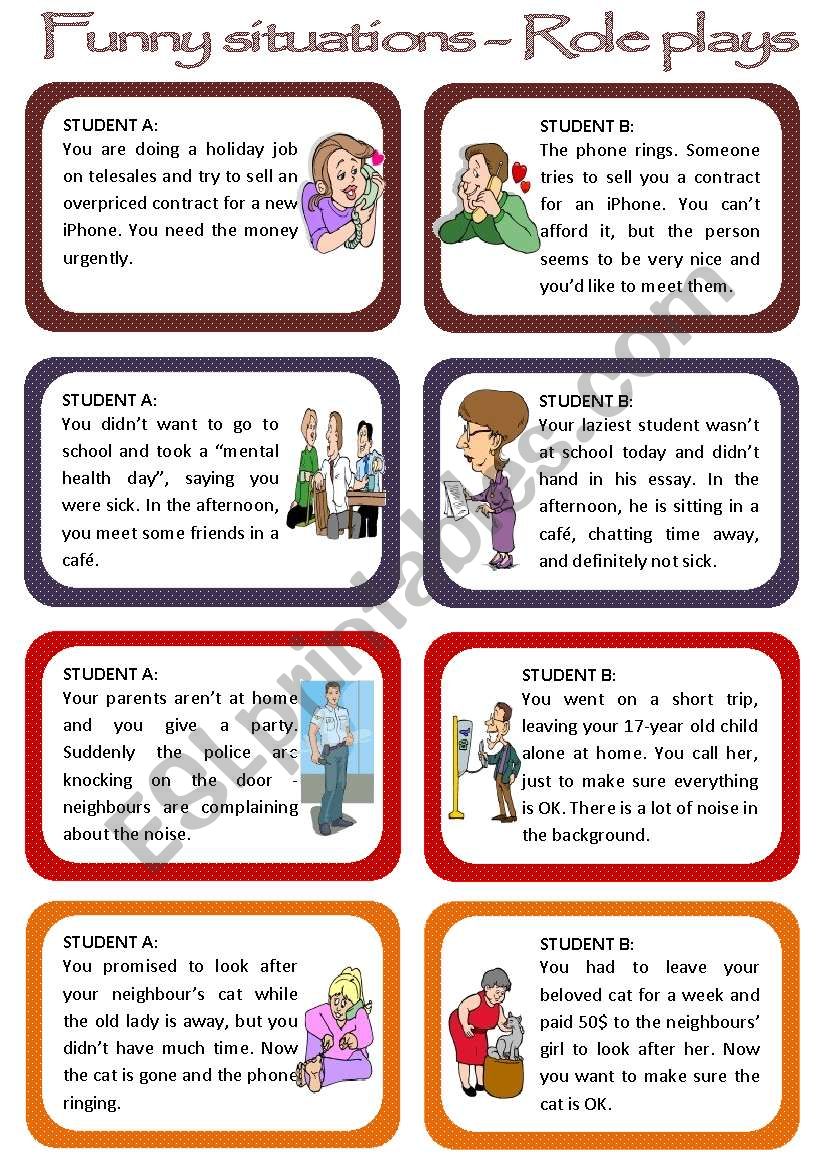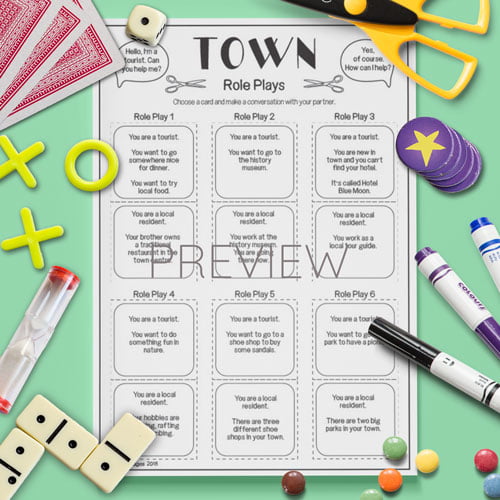Imagine a classroom buzzing with energy, not with the hum of textbooks but with the excited chatter of characters stepping into different worlds. This is the magic of role play, a powerful tool that transforms English learning from a passive activity into a vibrant, interactive adventure. If you’re a teacher searching for ways to engage students and fuel their language skills, look no further than the versatility of role play.

Image: materiallistmattie.z22.web.core.windows.net
Role play offers far more than just a fun diversion; it’s a gateway to authentic language use, critical thinking, and even personal growth. Through stepping into different roles, students become immersed in scenarios, practicing their communication skills, and building confidence in expressing themselves. But let’s dive deeper into the world of role play, uncovering the treasure trove of benefits it offers and exploring the countless ways it can be implemented in your classroom.
The Power of Role Play: Unveiling the Hidden Potential
Imagine your students becoming doctors diagnosing ailments, shopkeepers negotiating prices, or even journalists interviewing prominent figures. This is the magic that role play conjures, transforming abstract concepts into tangible experiences. By engaging with scenarios, students grapple with real-life situations, tackling challenges, and exercising their language skills in context.
Tailoring Role Play to Diverse Learning Styles
One of the undeniable strengths of role play is its adaptability. It’s not a one-size-fits-all approach. Instead, it can be tailored to suit various learning styles and individual needs. Visual learners can engage through creating props and setting the stage, while auditory learners can thrive on dialogue and conversation practice. Kinesthetic learners can bring role play to life through physical interaction and movement.
Unleashing Creativity with Flexible Role Play Topics
The beauty of role play lies in its limitless potential for creativity. From everyday scenarios to fantastical realms, the possibilities are endless.
-
Everyday Interactions: Students can practice basic conversation skills through scenarios like ordering food at a restaurant, asking for directions, or making appointments.
-
Historical Events and Figures: Role play can bring history to life! Students can reenact historical events, debates, or even imagine themselves as famous figures like Cleopatra giving a speech or Marie Curie presenting her groundbreaking research.
-
Current Events and Social Issues: Role play offers a platform for critical thinking and discussion. Students can engage in debates about pressing issues, taking on different perspectives and fostering empathy.
-
Storytelling and Imagination: Students can create their own stories, write scripts, and perform for their peers. This activity encourages creativity, language development, and even public speaking skills.
-
Career Exploration: Role play can open doors to different career paths. Students can explore professions like doctors, lawyers, architects, or teachers, practicing their communication and problem-solving skills in those roles.

Image: grulanguages.com
The Magic of Role Play: A Teacher’s Perspective
As an educator, I’ve witnessed firsthand the transformative power of role play in the classroom. Students become more confident in their speaking abilities, their vocabulary expands, and they develop a deeper understanding of grammar through practical application. They’re actively creating meaning, not just passively absorbing information.
Making Role Play a Classroom Success: Practical Tips
-
Clear Objectives: Before embarking on any role play activity, set clear learning objectives. What specific language skills will students practice? What concepts will they explore?
-
Engaging Scenarios: Design scenarios that are relevant, interesting, and challenging. Consider current events, pop culture references, or even incorporate students’ personal interests.
-
Provide Resources: Give students props, costumes, or visual aids to enhance their immersion in the role play scenario. They can also create their own props or even design posters and presentations.
-
Structure and Support: Provide a clear structure for the role play, including roles, props, and specific tasks. Offer support through prompts and guiding questions, especially if students need encouragement.
-
Feedback and Reflection: Dedicate time for students to analyze their performance, reflect on their learning, and offer constructive feedback to their peers.
The Future of Role Play in Language Learning
As the world embraces technology, role play is evolving beyond traditional classroom settings. Online platforms offer immersive experiences, simulations, and virtual role play scenarios. This allows students to connect with peers globally, expanding their exposure to diverse accents and languages.
Role Play Topics For Students In English Pdf
Final Thoughts
Role play offers a dynamic and engaging approach to mastering language skills, transcending the boundaries of textbooks and opening doors to real-world communication. By incorporating role play into your curriculum, you’ll spark creativity, fuel critical thinking, and build student confidence. Remember, the stage is set, the costumes are ready, and the possibilities are endless!






